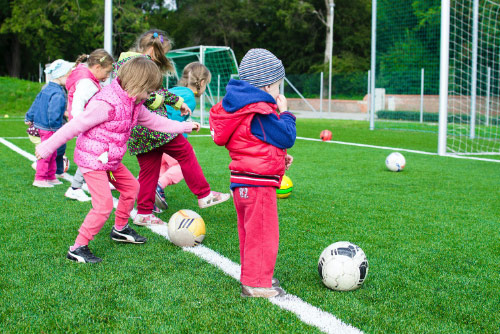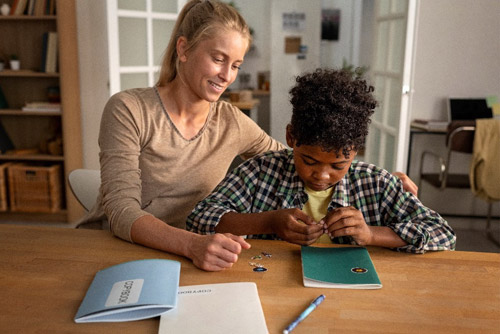
Playing Sports: Why an active lifestyle is important for children
Sports are an integral part of our South African culture and have touched nearly everyone’s lives to some degree. Whether it be watching a rugby game on TV or playing Marco-Polo in the pool, we are always building memories and enjoying experiences centred around playing sports. There are a multitude of studies that have shown that sports help improve the physical, mental and social well-being of kids and adults alike. Sports contribute to the foundational skills children need to learn in order to successfully navigate the world around us. So, without further ado, here are 6 reasons why you should encourage your children to play sports.
1. Playing Sports Helps develop Social Skills
When your children play sports, they are, in effect, participating in a social activity. This involves interreacting and communicating with their team players, coaches, opponents and even parents. Playing sports encourages your kids to develop and improve important social skills that they can use on and off the field. Playing sports encourages your kids to socialise and make friends while having fun. As a bonus, they will unwittingly learn life lessons and team strategies along the way too.
2. Promotes an Active Lifestyle
It stands to reason that being active helps kids stay in shape, and build up athleticism and endurance. Being on the move helps strengthen bones, build muscles and reduce risk of chronic conditions such as type 2 diabetes and heart disease. Most importantly however, playing sports has been seen to help reduce stress, depression and anxiety. As our children grow and develop into young little humans, they are bound to experience unwelcome emotions in difficult situations. Playing sports can become an outlet for these emotions, even from such a young age. In addition, it is also a space where they can learn vital skills needed to navigate difficult situations that arise.
3. Teaches them Teamwork
Team sports require all team members to work together towards a particular goal. Whether that be simply scoring one extra goal during a match, or stiving to win an entire championship. Through regular practise sessions and competing against other teams, your kids will learn to work in union, communicate with team members and band together to achieve a common goal.
4. Teaches them Discipline
Both individual and team sports require commitment and discipline. Early morning training sessions and weekend matches often become a routine part of playing sports. Kids will need to go to practise regularly, and even perhaps attend additional training if they are looking to improve their skills. They will also need to attend school, complete all their homework and attend various other family, schooling and social events throughout the sporting season. This will help them learn to manage time, and become disciplined about completing tasks. These are vital lessons that will develop into valuable skills they can carry with them into their adult years.
5. Helps them Deal with Adversity
Playing sports doesn’t always go as planned. There are winners, but there are also losers. In addition, there are also situations that arise that may bring about feelings of prejudice and favouritism. A biased referee or an unfriendly competitor. Playing sports will inevitably teach your kids to face adversity head on, however the good news is that it will also provide them with the means and mechanisms to deal with these difficult situations. Your kids will learn to persist, even when they are feeling frustrated or tired. Life is full of adversities, and what better place to learn how to handle them, than on the sports field.
6. Playing Sports keeps your Kids Busy
Consider for a moment how your children spend their spare time. After all chores and homework has been completed, do your kids sit in front of the television? Do they spend hours indoors on the iPad? Playing sports is a great way to get your kids outdoors. Not only will bedtime routine be a little easier after a couple hours of exerting pent-up energy, but it will also encourage them to enjoy spending time outdoors. Playing sports will keep your children preoccupied, while having fun!
In conclusion, apart from helping your kids stay physically active, playing sports equips your little ones with important life lessons and skills that they can carry with them throughout their teenage years, all the way into adulthood. Most schools offer sporting facilities and programmes that you can get your kids involved in from a young age. Additionally, there a multitude of external sporting clubs that offer great extracurricular activities.






